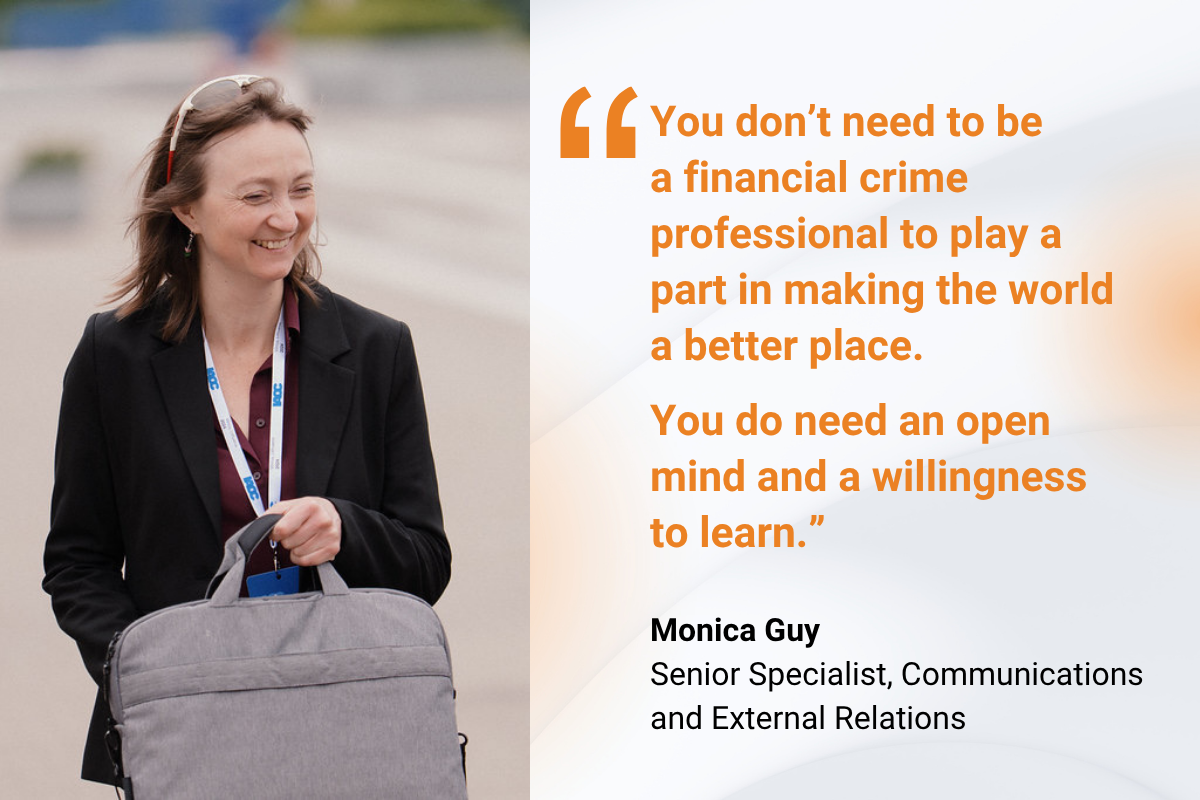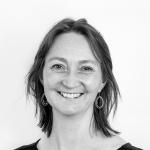Not just for lawyers: learning your way into anti-corruption

Our Senior Communications and External Relations Specialist Monica Guy looks back on how a curious mind paired with diverse learning opportunities and the desire to make an impact can pave the way into anti-corruption. This article is part of a series on careers in fighting financial crime and opportunities to learn and study with the Basel Institute.
One of the many things I’ve learned at the Basel Institute on Governance is that rewarding jobs in the field of countering financial crime are not just for those who woke up aged 10 and said: “Mummy, I want to be an anti-corruption prosecutor”. Or who studied business and law with the dream of becoming a compliance officer.
My own journey has been rather zig-zaggy, from caring for Stephen Hawking to managing multilingual content projects for Google and big companies in the travel and shipping industries. And a lot in between.
Education and continuous learning have been crucial in giving me the flexibility to bounce from one thing to another and hopefully make at least a tiny bit of impact on the way.
From dusty libraries to blended learning
I didn’t learn much of practical use during my first degree in Classics at Cambridge. But it was a good way to learn to think, read, write and argue with clever people about the world with all its wonders and weirdness. That’s something I have to do a lot in my communications role at the Basel Institute, though thankfully not in ancient Greek.
My first master’s in interactive communications at Quinnipiac University was one of the earliest “blended learning” degree courses. I.e. hybrid classes and the (then) revolutionary idea that it’s better to learn the theory in advance and use precious class time to practise and discuss.
What was in 2010 the cutting edge of communications now looks like stone-age cave paintings. But it did give me the basics to start building websites (early web design = animated cave paintings) and think a bit more strategically about things like audience, purpose and how communications and social media tactics can be used for good or ill. That has been of real practical value in our efforts to build the Basel Institute’s visibility and reputation over the last years.
Digging deeper (but I wish Basel STUDY had existed then)
You can’t be successful in communicating if you don’t understand what you’re talking about. So during covid times I took another master’s course, this time in sustainable development at SOAS University of London. I wanted that deeper understanding of topics like poverty, globalisation and environment that are fundamental to the work the Basel Institute does.
This degree was fully online and designed to fit alongside a full-time job. But I’ll be honest: if our Basel STUDY courses had existed then, I’d have gladly taken them instead.
Basel STUDY – that's our postgraduate programmes with the University of Basel: they are six months, hands-on, with live classes and in-person meetings, top-notch instructors and a diverse group of other participants with real-world experience. That’s a lot more fun, useful and digestible than a two-year master's degree, plus easier to combine with other modules and qualifications.
Free or low-cost learning
I absolutely know that I’ve been privileged to be able to study at good universities, with grants and jobs to pay the way.
But I’ve also learned a lot through MOOCs (Massive Online Open Courses) and other free or low-cost online learning opportunities from organisations like Coursera and the University of Leiden. And of course the crème de la crème of eLearning: our own free Basel LEARN courses on countering financial crime.
A desire to learn
All this to say that you don’t need to be a “financial crime professional” to play a part in making the world a better place.
Just as you don’t need to be a “communications professional” to communicate effectively about countering corruption, fostering good governance, catalysing asset recovery and all the other difficult but worthwhile things we do here in Basel and around the world.
What you do need is a desire to learn – from courses, peers and colleagues.
Join in
My “call to action”? Take a look at the opportunities we offer at the Basel Institute for individuals who also burn to learn about countering corruption and financial crime and build practical skills they can apply in their daily work:
- Basel LEARN – our online training and learning hub with free eLearning courses and lots more
- Basel STUDY – our new academic programmes with the University of Basel on anti-corruption and asset recovery
- Our forthcoming open course on Introduction to blockchain: crypto investigation and AML compliance



